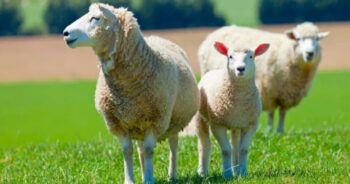 Nike has made a significant change to its corporate and social responsibility policy that will see the sportswear giant commit to only using wool certified to the Responsible Wool Standard (RWS).
Nike has made a significant change to its corporate and social responsibility policy that will see the sportswear giant commit to only using wool certified to the Responsible Wool Standard (RWS).
The changes to its Chemistry Playbook and Restricted Substances List will see Nike only source wool from non-mulesed sources, bringing it into line with competitors such as Adidas and Puma.
As well as covering animal welfare issues, the RWS also includes guidance on progressive methods of land management to protect soil health, biodiversity, and native species, as well as social welfare, working conditions, and the health and safety of workers.
The change in policy was welcomed by global animal welfare organisation Four Paws, which has been advocating against the cruel procedure of mulesing for years and specifically with the launch of a campaign directed at Nike in 2022.
“We congratulate Nike on this important commitment which will benefit millions of lambs,” said Rebecca Picallo Gil, head of the wool campaign at Four Paws. “With the upcoming mulesing season in Australia due to start, this news comes at a crucial time and sends a strong signal to the wool producers, being an influential brand with potential to inspire the entire apparel market. This win was only possible with the help of tens of thousands of supporters fighting together with Four Paws for better animal welfare in the sports apparel market.”
Merino wool is widely used in sports apparel for its moisture wicking performance, breathability and odorless properties. However, many suppliers in Australia, the world´s biggest supplier of Merino wool, still practice mulesing procedures, which involves cutting off large chunks of skin from two to ten-week-old lambs with sharp shears.
As Four Paws notes, there have long been pain-free alternatives to this, such as switching to breeding sheep that are naturally flystrike resistant. There are also certification systems that enable traceability from the shop floor to the farms, in order to reliably exclude mulesing.
Globally over 350 brands have already published anti-mulesing policies and over 70 brands have signed an open letter to the Australian wool industry to demand an end to the practice.


















